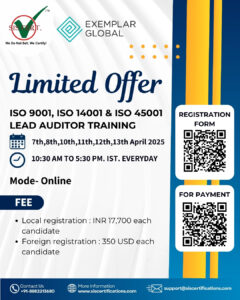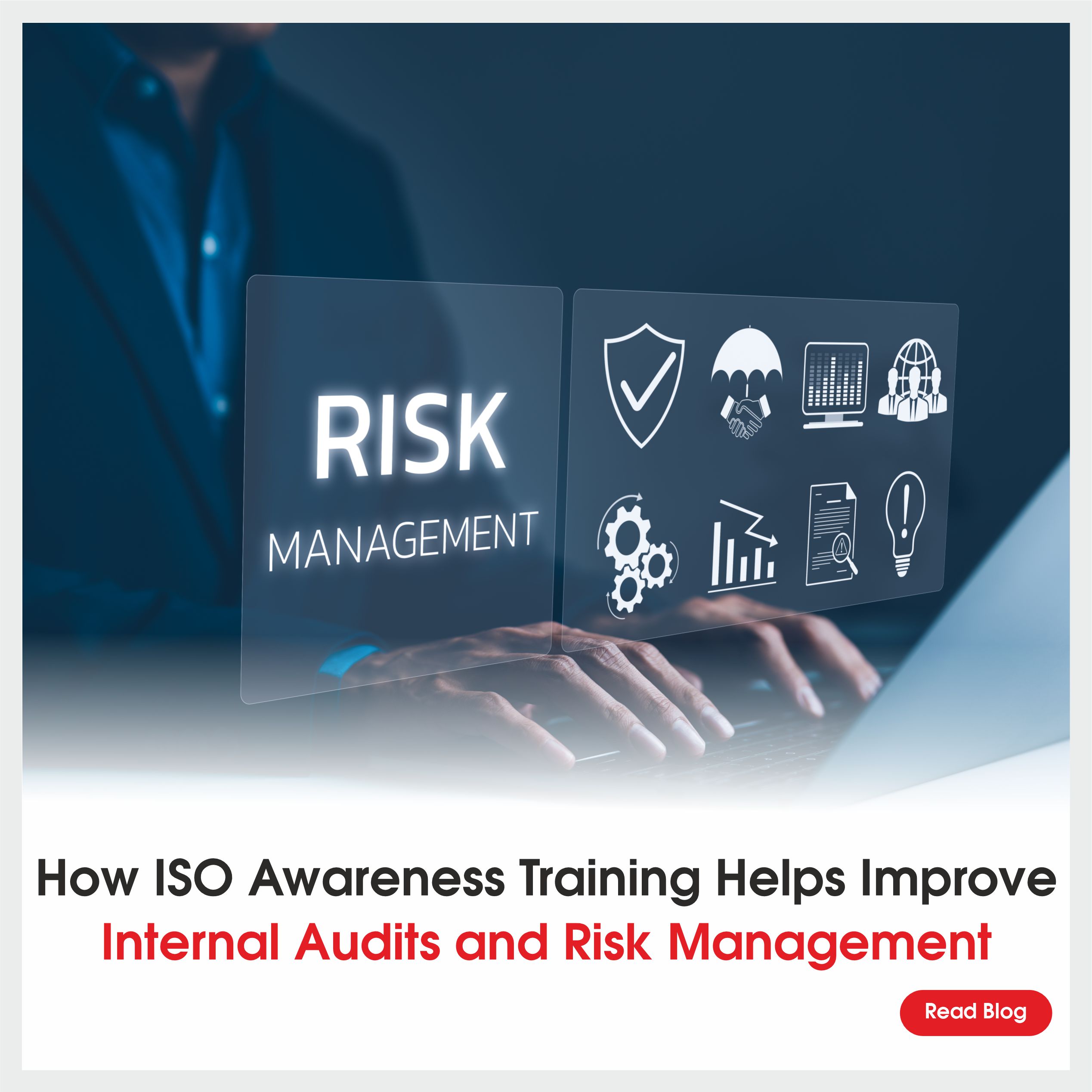ISO Lead Auditor Training is a crucial step for professionals looking to enhance their auditing skills in ISO 9001:2015 (Quality Management System), ISO 14001:2015 (Environmental Management System), and ISO 45001:2018 (Occupational Health and Safety Management System). Integrated Management System (IMS) Lead Auditor Training equips individuals with the knowledge and expertise to conduct audits effectively, ensuring compliance with international standards.
However, many participants make mistakes that can hinder their learning experience and performance. To help you make the most of your training, let’s explore some of the most common mistakes and how to avoid them.
Lack of Preparation Before the Training
Many participants assume that attending the training sessions alone is enough to grasp the concepts. However, ISO Lead Auditor Training requires a basic understanding of ISO standards before the training begins.
How to Avoid This:
- Read the core requirements of ISO 9001, ISO 14001, and ISO 45001 before the training.
- Familiarize yourself with audit principles and terminology.
- Review case studies or previous audit reports to understand real-world applications.
Not Actively Participating in Discussions
ISO Lead Auditor Training includes interactive discussions, role plays, and case studies. Some participants remain passive, assuming they can absorb knowledge without engagement.
How to Avoid This:
- Ask questions whenever you have doubts.
- Share your experiences related to management systems.
- Engage in group activities and discussions to reinforce learning.
Ignoring Practical Audit Techniques
Understanding ISO clauses is essential, but the ability to apply them in real-life audit situations is what truly matters. Many trainees focus too much on theory and neglect practical applications.
How to Avoid This:
- Practice audit planning, execution, and reporting during the training.
- Participate in simulated audit exercises.
- Seek feedback from instructors on your auditing approach.
Poor Time Management During Audit Exercises
A common challenge during ISO Lead Auditor Training is time management. Participants often struggle to complete audit exercises within the given timeframe.
How to Avoid This:
- Develop a structured approach for conducting audits.
- Prioritize critical audit areas based on risk and importance.
- Learn to manage time effectively by practicing audit scenarios.
Not Taking Effective Notes
The training covers extensive information, and without proper note-taking, it’s easy to forget key points. Relying solely on training materials may not be enough.
How to Avoid This:
- Write down key audit techniques, examples, and instructor insights.
- Summarize essential points after each session for better retention.
- Use diagrams or mind maps to structure information effectively.
Overlooking Audit Ethics and Professional Conduct
Ethical behavior is a fundamental requirement for an ISO Lead Auditor. Some trainees focus only on audit techniques and forget the importance of integrity and impartiality.
How to Avoid This:
- Understand the ethical responsibilities of an auditor.
- Avoid conflicts of interest and maintain confidentiality.
- Follow ISO 19011:2018 guidelines for audit principles and integrity.
Misinterpreting ISO Standards
ISO standards can be complex, and misinterpretations can lead to incorrect audit findings. Some participants struggle with differentiating between compliance and best practices.
How to Avoid This:
- Always refer to the official ISO standard documents.
- Seek clarification from trainers when in doubt.
- Discuss real-life scenarios to understand practical applications better.
Failing to Develop a Risk-Based Thinking Approach
ISO standards emphasize risk-based thinking, but some trainees focus only on compliance without considering potential risks and opportunities.
How to Avoid This:
- Understand how risk-based thinking applies to ISO 9001, ISO 14001, and ISO 45001.
- Use risk assessment techniques in audit exercises.
- Ask trainers for examples of risk-based auditing.
Neglecting Continuous Improvement After Training
Becoming a successful ISO Lead Auditor does not end with completing the training. Some participants fail to continue learning and improving their skills.
How to Avoid This:
- Stay updated with changes in ISO standards and auditing practices.
- Participate in additional training sessions or webinars.
- Engage in real-world audits to gain practical experience.
Conclusion
ISO Lead Auditor Training is an invaluable step in becoming a competent auditor for ISO 9001, ISO 14001, and ISO 45001. By avoiding these common mistakes, you can maximize your learning experience and enhance your auditing skills. Remember to prepare in advance, actively participate, focus on practical applications, and continue improving even after completing the training.
📅 Upcoming Training Schedule:
🗓️ Dates: 7th, 8th, 10th, 11th, 12th, and 13th April 2025
⏰ Time: 10:30 AM – 5:30 PM IST
Invest in your professional growth and become a certified ISO Lead Auditor by avoiding these common pitfalls.
Sign up today and take the next step in your auditing career!




